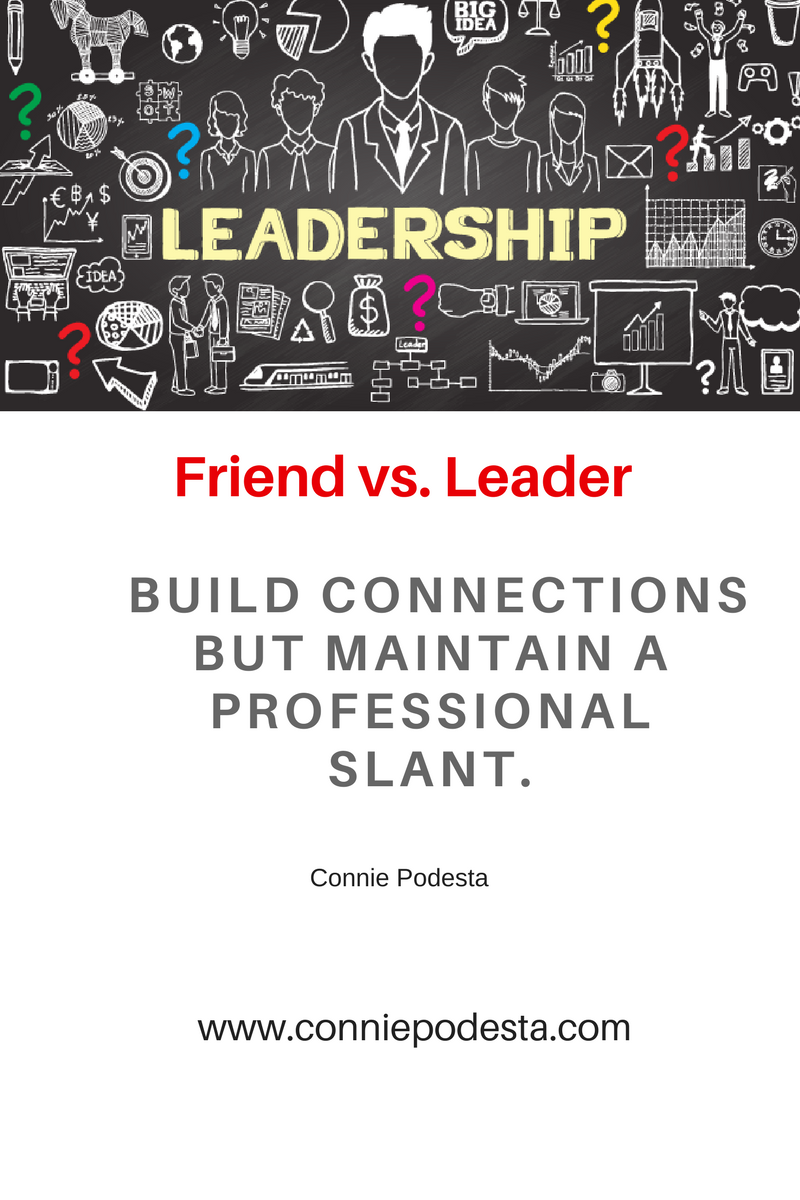
Friends and Leaders: The Challenges of Changing Roles
By Leadership Keynote Speaker Connie Podesta
When workplace roles change, so do relationships. Which can make for some very interesting—and perhaps awkward—situations.
Consider the impact. Your best friend on the team gets promoted. Or you get promoted. In a single moment, there’s a clear shift. Instead of being grab-a-beer-after-work-to-complain-about-the-boss co-workers, now one of you IS the boss. Throwing a new sense of accountability into the mix quickly changes the dynamic.
Here’s the issue. When the line between friendship and leadership becomes blurry, problems can creep in. For everyone involved.
Now I’m certainly not suggesting that business professionals shouldn’t have friends at the office. In fact, they should. There’s a distinct value in knowing more about your colleagues than just what they contribute to the department goals. Building relationships is important for boosting teamwork and collaboration. But it’s also important to have some limits that can protect your career when those role changes inevitably occur. In your favor. Or theirs.
Before you hit “send” on a snarky email to a work friend or make a sarcastic comment to them, think to yourself: could this person one day become my boss? Or vice versa? That puts a whole new spin on how you communicate with colleagues. Or at least, it should. Be strategic about what information to share and what to keep private.
The other angle here involves the behaviors you might confidentially share with your work friends. If you and your office buddy occasionally take a “sick day” to meet at the beach, what happens when one of you has to hold the other accountable for absences in the future? That creates a highly uncomfortable position for both of you.
No one knows exactly how the corporate organization chart will evolve in the future. But if your goal is to become a leader or continue rising through the ranks, don’t underestimate the importance of managing your business friendships. Your first priority as a leader will be team success.
With that in mind, build connections but maintain a professional slant. It might feel like a great bonding experience to regularly commiserate or complain to a fellow team member but think about the long-term career impact of those conversations when the roles change. And someday they will.
I discussed more about this topic in a short video, below:
“Quit Trying to be Their Friend,” is part of my series called Top 10 Things You Need to Quit to Be a Better Leader. Click here to watch this video, or check out others on my YouTube channel.
to